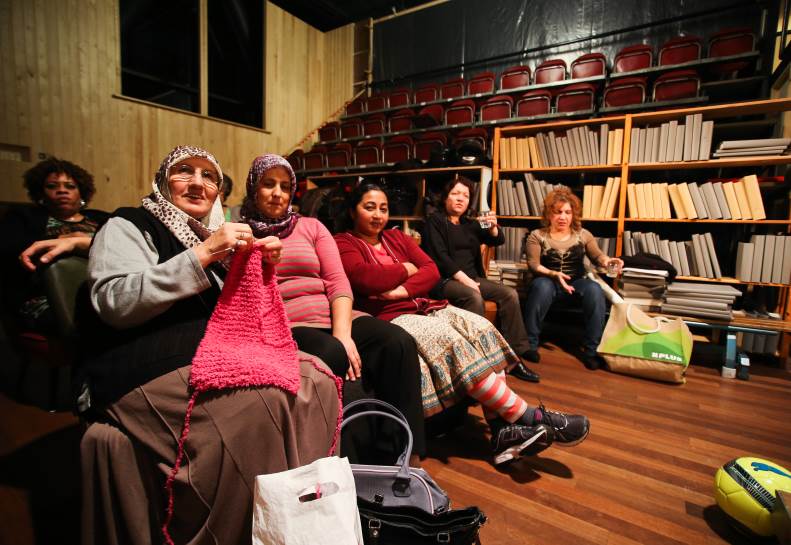home
>
en
>
danton's death
duration 2:45, incl. 1 pauze
premiere 09 Feb 2014
After his radical Macbeth, Johan Simons returns to direct another classic from the world repertoire. His Danton’s Death places the two architects of the French Revolution, Danton and Robespierre, in stark opposition to each other.
Once united as friends in the fight for their common ideals, their relationship is now steeped in suspicion and conflicting views: Robespierre wants to establish a democracy, whatever the cost, while Danton feels increasingly unsure whether mankind is capable of making the sacrifices needed for a revolution. Foreseeing failure, he retires to the company of friends and lovers for a waking night of intoxication and carnality, while Robespierre consolidates his power with each freshly hewn head.
Danton’s Death is a razorsharp analysis on political tactics and a study to the way politics and private lives intertwine.
Johan Simons, agent of the Münchner Kammerspiele, was formerly in charge of Hollandia, ZT Hollandia and NTGent. His plays often have an explicitly societal theme. After his extreme adaptation of Shakespeare’s Macbeth in the previous Toneelgroep Amsterdam season, Simons now makes an equally affecting play of Danton’s Death as he wonders about the desirability and attainability of a revolution in the current time. ‘Of course I have asked myself what revolution means in this day and age. Does the Arab Spring count as a revolution? Does the anti-globalism movement? The sit ins of the Indignados? I believe that today’s only real revolution is the revolution of genetics. When I view the shambles mankind is making of its world and its self, we –I together with Michel Houellebecq and Peter Sloterdijk- ask ourselves: if we had the means to create a better human being than the one who walks the earth today, why shouldn’t we? It is a question I explicitly want to address in Danton’s Death.’

de oversteek (the crossing) – adelheid roosen
Project The Crossing by alliance partner Adelheid Roosen perfectly fits her own trademark motto; Kingdom-Empire-Community Centre, in that hierarchical order. In Danton’s Death local residents pop up and trek along with the performance like nomads. When the audience returns home, the residents stay behind and literally settle down for the night inside the theatres. ‘A place is a place, but an audience is mobile. The People are mobile. A people is nomadic. So I trek, along with a hundred men and women from the quarters of the cities where the play is performed, into the theatre. We traverse the crossing between the city blocks and the theatre building. These civilians and citizens represent the essence of the play: the People. Most of them will seldom have set foot into a theatre. They will not perform. They stay right who they are: themselves. On the stage they will do whatever they do to feel at home, and they will honour the theatre as a place like a community centre.’, says Roosen.
#dantonsdood